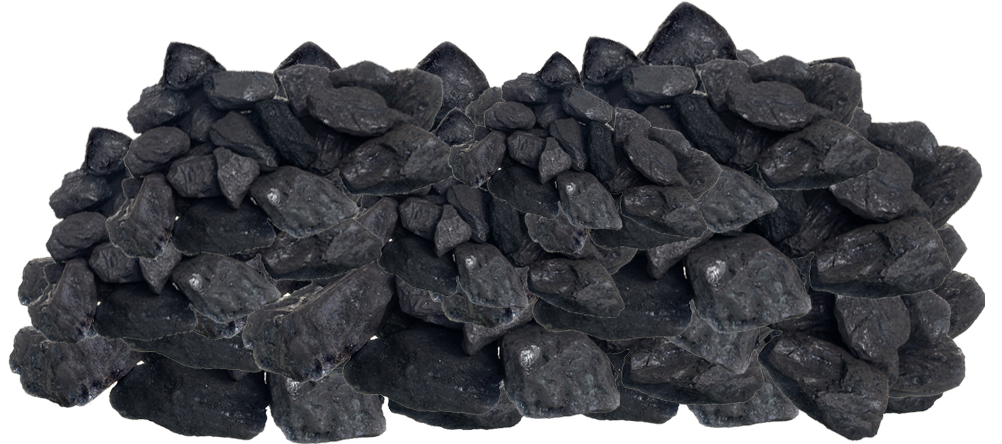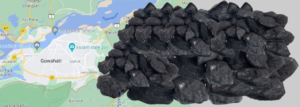Coal Dealers in Guwahati

Contact Us
If you are looking for Coal Dealers in Guwahati, we at Coalshastra.com can assist you with same. We are the online marketplace for buying and selling coal with thousands of coal dealers, buyers and sellers from Guwahati, selling different varieties of coal. You may finding thousands of listing by such Coal dealers in Guwahati on our platform. You may also place your listing specifying your coal requirements in terms of GAR, NAR, location of delivery, lifting days, etc.
There are primarily 5 Types of Coal Dealers in Guwahati
Taken in various permutations & combinations, these characteristics result in 5 distinct types of coal dealers in Guwahati which are as follows:
1. Miners of Coal in Guwahati
In India, Coal India Limited (CIL) is the major mining company. It operated via its numerous subsidiaries including:
-
-
-
- Northern Coalfields Ltd, NCL
- Central Coalfields Ltd, CCL
- Eastern Coalfields Ltd, ECL
- North Eastern Coalfields Ltd, NECL
- South Eastern Coalfields Ltd, SECL
- Western Coalfields Ltd, WCL
- Mahanadi Coalfields Ltd, MCL
-
-
Apart from CIL, Singareni Collieries Coalfields Ltd, SCCL is also a state-owned coal mining company supplying to the Telangana and Andhra Pradesh markets. There are also captive mines allotted to various end user companies including power plants, cement plants, steel companies etc, which are now allowed to sell up to 50% of their production in open market.
2. Importer of Coal in Guwahati
These are large trading concerns with big banking limits and often have overseas presence as well. They import from other countries, taking advantage of pricing differentials. They are mostly present in major cities, and across various ports. They have operations teams to support the evacuation of coal from ports in a time bound manner.
3. Distributor of Coal in Guwahati
They are large traders with a monthly traded volume greater than 20 KT. They often buy from importers getting leverage of up to 10 times their immediate capital investment. Their major targets are mid-sized end consumers and traders.
4. Mid-Sized Trader or Dealers of Coal in Guwahati
They are companies with volumes below 20 KT/month. They usually deal with small traders and directly with end consumers. They provide various value adds including transportation facilities, short term credit facility and quality assurances.
5. Small Trader or Dealers of Coal in Guwahati
These are small companies, usually located near to the consumption centres. They cater to 10-20 SME’s at any given time and provide various services including transportation facilities, short term credit facility and quality assurances.
Coal is an important source of energy for India and is critical for our energy security. It accounts for around 44% of our primary energy needs and powers around 75% of our entire electricity generation. Coal is so important that despite concerns around global warming, our government is refusing to let the coal industry die without a credible & feasible long-term phase out plan. In fact, the government of India has communicated even to the United Nations that coal will remain a steadfast pillar supporting the Indian economy for the coming decades.
All About Guwahati
Guwahati is the largest city in the Indian state of Assam, as well as the country’s largest metropolis. Dispur, Assam’s capital, is located in Guwahati’s circuit city region and serves as the headquarters of the state government. Guwahati, a significant riverine port city with hills and one of India’s fastest developing towns, is located on the Brahmaputra’s south bank. It’s known as the “Gateway to North East India.”

The city is home to many ancient Hindu temples, including the Kamakhya Temple, Ugratara Temple, Basistha Temple, Doul Govinda Temple, Umananda Temple, Navagraha Temple, Sukreswar Temple, Rudreswar Temple, Manikarneswar Temple, Aswaklanta Temple, Dirgheshwari Temple, Asvakranta Temple, Lankeshwar Temple, and Bhubaneswari Temple.
Guwahati is located between the Brahmaputra River and the Shillong plateau’s slopes, with LGB International Airport to the west and Narengi to the east. The northern bank of the Brahmaputra is progressively being included into the city limits of Guwahati. Guwahati is 30 kilometres (19 miles) away from the well-known Madan Kamdev. The Guwahati Municipal Corporation, the city’s local administration, oversees a 216-square-kilometer (83-square-mile) region, while the Guwahati Metropolitan Development Authority (GMDA) is the Greater Guwahati Metropolitan Area’s planning and development authority. Guwahati is the major city in the north-eastern Indian state of Assam.
To the north of the metropolis, the Brahmaputra River runs. The Shillong plateau’s foothills border the city on the south, and the Amchang Wildlife Sanctuary on the east. The Bharalu River, a tributary of the Brahmaputra, runs through the city centre. Dipor Bil, a permanent freshwater lake to the south-west of the city, has no significant inflows other than monsoon run-off from the hills to the south of the lake. The lake is a natural stormwater reservoir for the city, draining into the Brahmaputra 5 kilometres (3.1 miles) to the north. Within the city borders, there are several hills.
Guwahati is home to Assam’s capital, Dispur. The Indian Parliament granted Meghalaya the status of a full-fledged state in 1971 when it passed the North Eastern (Reorganization Areas) Act. Shillong remained the combined capital of Assam and Meghalaya after the formation of Meghalaya as a separate state. The Assam government, however, chose to relocate the capital to Dispur in 1972. As a result, the Assam Legislative Assembly’s Budget Session convened for the first time on March 16, 1973, at Dispur. The Assam Government Secretariat, the Assam Assembly House, the Regional Office of the National Bank for Agriculture and Rural Development (NABARD), the North Eastern Development Finance Corporation Ltd (NEDFi) House, and the Guwahati Tea Auction Centre are all located in Dispur (GTAC).
The Guwahati Municipal Corporation is the local government entity in charge of the city’s governance, development, and management. There are 31 municipal wards in the city. The Guwahati Metropolitan Development Authority (GMDA) is in charge of planning and developing the wider Guwahati Metropolitan Area, as well as amending the Guwahati Master Plan and Building Bylaws, which will cover 3,214 square kilometres (1,241 square miles) by 2025.
Scenario of Coal Industry in Guwahati
While looking for Coal Dealers in Guwahati, it is important to understand scenario of Coal Industry.
The Indian economy is so dependent on the black gold, that the government predicts a rise in its consumption by around 50% in the coming years. The government has been steadily making strides towards a more market-based pricing approach and a freer coal economy than what we see today. This is apparent by the various market friendly policy decisions taken by the Government of India.
- Continuous auctions on rotational basis of coal mines for commercial mining with market linked pricing. More mines are continuously added to the existing pool and auctions are being continuously being held by the government to keep investor interest strong thus bringing in FDI to the space.
- They’ve recently allowed captive mines to sell 50% of their production in open market. This has the potential to unlock more availability of the fuel to the industry thus increasing supply sources and hence deepening the market.
- We’ve seen more and more coal being sold by Coal India Ltd via the auctions route. This has resulted in the company realising much better market linked prices, thus not having to subsidize energy to industries via long term, under-priced linkages, which sell their product on market linked prices, often making a killing.
Coal is a massive, 250 Bn $ sector in India. It is almost 10% of the Indian GDP. Our current consumption of almost a billion MT is met partially by domestic mines operated by government-controlled Coal India and rest almost 25% via imports from various countries across the globe. Our major importing partners include Indonesia, South Africa, USA, Australia, and Russia. Coal Dealers in Guwahati.
Last 5 Awarded Deals
| Coal Type | Country | Port | Vessel/Mine | Quantity |
|---|---|---|---|---|
| Thermal Coal | Indonesia | Navlakhi Port | 4800 GAR +/- 100 | |
| Thermal Coal | Russia | Kandla Port | 6100 NAR +/- 100 | |
| Thermal Coal | Indonesia | Navlakhi Port | 4800 GAR +/- 100 | |
| Thermal Coal | Russia | Kandla Port | 6100 NAR +/- 100 | |
| Thermal Coal | Indonesia | Kandla Port | 5200 GAR +/- 100 |
Coal Market in Guwahati
Curiously this huge market for Coal dealers in Guwahati is divided into smaller clusters, peppered across the country in different, usually independent pockets. These smaller markets are characterized by different properties/
Geographical Location:
Coal is a cheap commodity (usually) in which Coal Dealers in Guwahati deals in. The main part of the costing of coal, which forms up to 90% of the plant delivered cost to a consumer, constitutes of handling and transportation costs, thus making it very sensitive to its location of mining and final consumption. India is blessed with a very long coastline, 7500+ Km. This gives us a distinct advantage in terms of commerce and the ability to import and export via cheaper sea routes from global sources. Nearness to the ports has thus been a common characteristic of many coal trading hubs like Gandhidham in Gujarat or Vishakhapatnam in Andhra Pradesh.
Nearness to domestic mines, which are mostly located near the central, eastern and south eastern parts of the country have been a prominent characteristic of domestic trade hubs like Kuju mandi in Jharkhand or Krishnapatnam in West Bengal. Some clusters are also seen near industrial consumption centres, where end user industry is concentrated like Mandi Gobindgarh in Punjab or Muzaffarnagar in Uttar Pradesh.
Origin of Coal: Coal from different origins is used in a variety of applications across the country. These uses vary with industry, its location and nearby supply sources or Coal dealers in Guwahati.
Indonesian coal: Indonesia is the world’s largest exporter of coal. With its landscape being criss-crossed by rivers, its location very near to the Indian sub-continent, it is relatively cheaper for us to source coal from here. Hence, it is no surprise that India is its second largest market. Indonesia is the largest source for our imported thermal coal needs. Being complimentary in its physical characteristics to our domestically available coal, Indonesian variety is often used for blending with ours. It is used in a very wide variety of industries across the country.
Coastal power plants have been built specifically to be able to utilize cheaper varieties to produce power. Steel rolling mills in Mandi Gobindgarh and Ludhiana in north and Telangana in south use it for heating applications. It is used by boilers in dyeing industry across Haryana, Uttar Pradesh and Rajasthan as a suitable, low sulphur, replacement to petcoke. Ceramics industry of Gujarat and captive power producers across the country have been using fuel from Indonesia to run their industries.
South African coal: South Africa is another large exporter of coal. India has been its largest market accounting for over 50% of its total exports. Grades of RB1 (6000 NAR), RB2 (5700 NAR), RB3 (5500 NAR) and 4800 NAR are exported from South Africa into India. This coal is used across India mainly by sponge iron makers and ferro alloy manufacturers. It is utilized for its high fixed carbon content almost as a chemical. It directly competes with domestic varieties in south and south-east India.
USA coal: US coal has the best net calorific value of any coal in the world. Originates from the regions of North Appalachian and Illinois Basin in US. It has been a favourite of the brick kiln owners across the entire northern belt of India. Cement manufacturers across the country have used US coal interchangeably with petcoke, a refinery by product, basis on pricing arbitrage, whenever available. Paper mills up north have also been occasional users, whenever domestic coal has been in shortage.
Australian coal: It is mostly used by the cement industry, which act as swing buyers. This has also been often used by power plants across the coastline, whenever there is an arbitrage opportunity.
Indian coal: Domestic coal is mainly mined by Coal India via its subsidiary companies and Singareni Collieries Coalfields Ltd. is mostly consumed within a short distance of the mine itself. These are the source for majority of the coal for industries across India. There are some smaller mines in Gujarat & Rajasthan also, which produce lignite, consumed by local industries like bricks, dyeing etc.
Coal Auctions
These auctions invite coal dealers in Guwahati and people from several industries to proportionately bid on mining coal blocks at the value at which they are sold and the amount that they would be willing to share with the government. Those bidders who are successful are granted leasing rights for a temporary period from the State Government. This allows them to mine a coal block for a limited period.
One interesting aspect of the recent 41 coal block bidding is the fact that it is the first time that private players are being allowed to mine coal for commercial purposes, without any restrictions. This implies that the mined coal could readily be sold in the open market, that was not the case until now. It is no longer necessary that the coal should be used purely for firms’ consumption.
Why Coal Bidding is important?
Despite India being the fourth largest country in terms of the number of coal reserves, a large number of industries still rely on imported coal that has a valuation close to 1.7 lakh crore. Especially, when the question comes of ‘Coking Coal’ (basic raw material for steel manufacturing), it is imported In large degrees as our domestic supplies are way too short to meet its demand. Coal dealers in Guwahati may help in procuring coal from such supplies.
Key Industries that has huge Coal Consumption
The coal consumption is maximum in the industries like power generation, steel manufacturing, liquid fuel, and cement manufacturing. The one that is used in power/electricity generation is known as Steam or Thermal Coal and Coking Coal is used for steel consumption. Besides these broad classifications, there are certain subcategories under which coal is divided like Bituminous Coal, Lignite, Hard Coke, Pet Coke, etc. These industries are the ideal customers for coal dealers in Guwahati.



